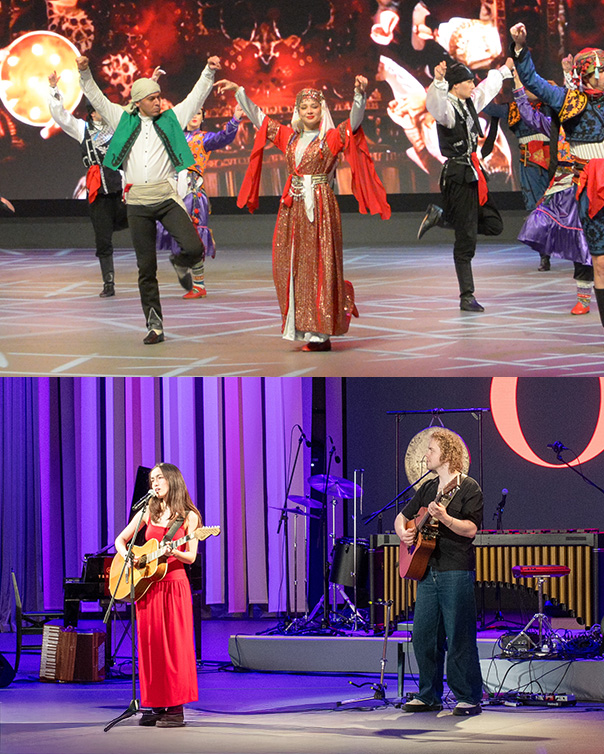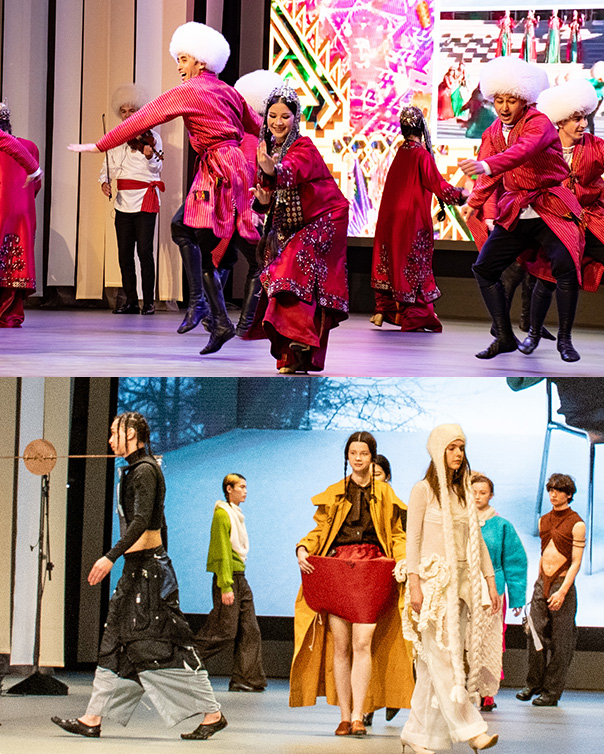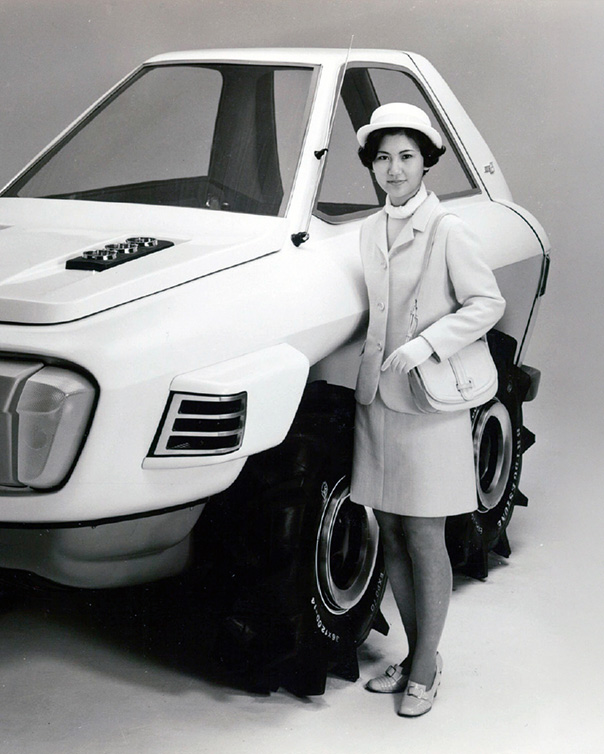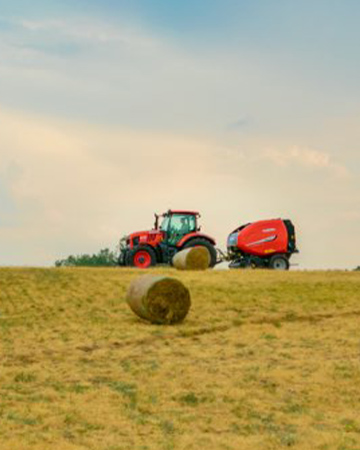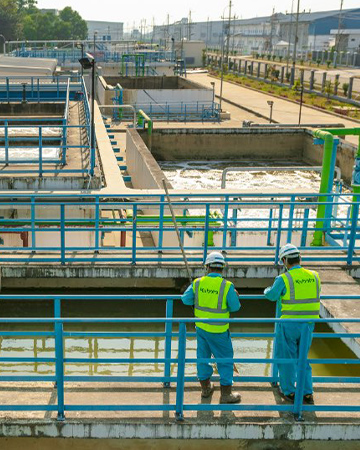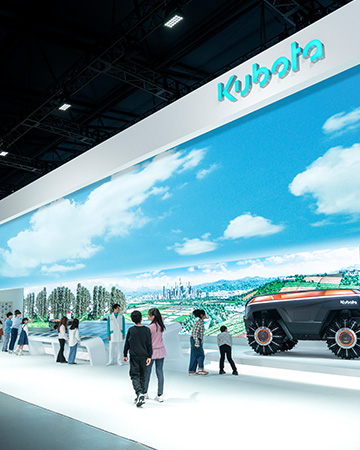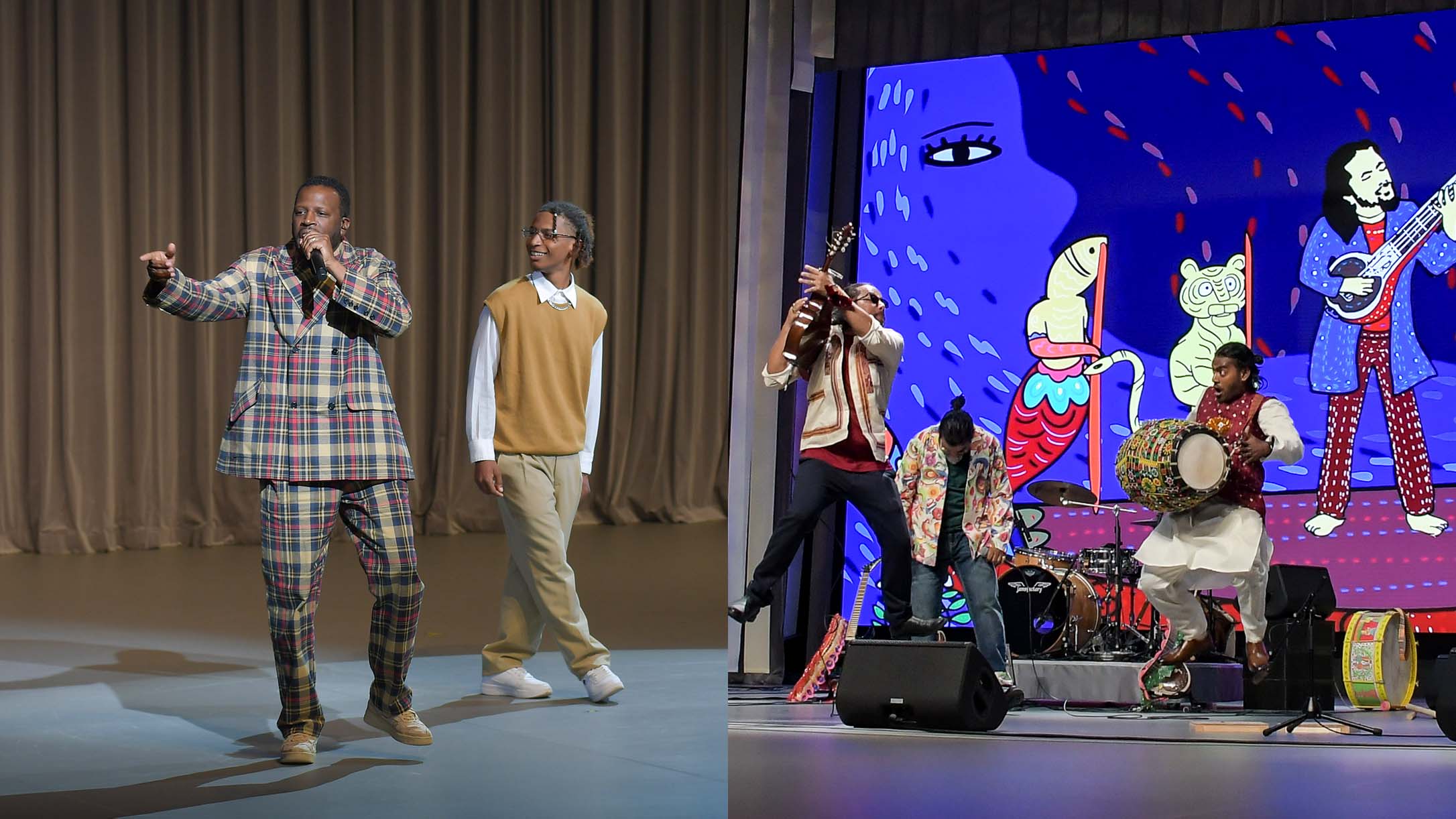
This series, entitled "Where the World and Kubota Intersect," introduces the future that countries from all over the world envision at Expo 2025 Osaka, Kansai (Expo 2025), which opened in April 2025, and describes the related social issues and how Kubota is involved.
This third installment showcases Portugal, a country with a long history as a maritime nation, and Bangladesh, which is facing challenges posed by climate change. How do Kubota technologies intersect, and how are we working together to chart a course to the future? We will explore some of these aspects through the international stage of this Expo.
The Portuguese Republic - Surrounded by the Sea and Fruit Trees, Technology is Embedded in This Country

"Devagar se vai ao longe"
(Slow and steady wins the race): Portuguese proverb
From the Age of Discovery to the present, Portugal has been connected with the world beyond the seas. Even now, the "with the sea" value thrives in the Portuguese lifestyle.
As if symbolizing its Blue Economy philosophy, the Portugal pavilion theme is "Ocean, The Blue Dialogue." Designed by Japanese architect Kengo Kuma, recycled fishing nets and approximately 10,000 ropes adorning the exterior of the pavilion sway in the wind, seemingly filling the entire building with the presence of the quietly breathing sea.
The exhibition space is divided into two sections: sharing knowledge, and sustainable partnerships. Diverse approaches in the sharing knowledge section are used to unravel the legacy of the voyage 500 years ago that connected Portugal and Japan. Through videos and immersive installations in the sustainable partnerships section, visitors can explore topics including marine conservation, renewable energy, and responding to climate change.
Portugal, which has one of the largest exclusive economic zones in the EU and has always walked hand in hand with the sea, has designed a specific vision for a sustainable future centered on the ocean as a resource.
On the other hand, Portugal also has another side. It is a fruit-growing country that takes advantage of its Mediterranean climate. The wide variety of fruit trees grown in this region, like citrus fruits and grapes, requires new approaches to address issues such as environment-conscious pest control and the optimized use of pesticides.

Under these circumstances, Kubota welcomed Pulverizadores Fede, a sprayer implement manufacturer from Valencia, Spain, into the Group in 2024. The use of autonomous smart sprayers outfitted with AI technology that adjusts the amount of chemicals sprayed on each individual fruit tree, as well as a system that tracks work history on a map display, is expected to contribute to the realization of high-precision farming while reducing environmental impact.
Smart agriculture in fruit growing is just being introduced in Portugal, which shares a similar climate and topographical conditions with adjacent Spain. The combination of Kubota’s narrow-width tractors and implements that are compatible with fruit growing has attracted attention. These technologies are laying a foundation for the future, in harmony with the Portuguese climate.
Kubota technology is quietly beginning to take root in Portugal, a country surrounded by two natural resources: the sea and fruit trees.
The People's Republic of Bangladesh - Connecting Water and Lifestyle, Power Supporting Tomorrow

"জীবন মানে চলতে হবে, না হলে বন্ধ হবে।"
(When movement stops, the road is closed): Bangladeshi proverb
Jute bags at the entrance of the Bangladesh pavilion greet visitors. This country is the second largest jute producer in the world, and the largest exporter in the world. Inside the pavilion, familiar industries including textiles, leather goods, and pharmaceuticals are each carefully presented, and the overall exhibition conveys a sense of "pride cultivated in daily life."
Expressions like "The Most Fertile Land in the World" and "Crafted with Care" are featured on exhibition panels, and the phrase "Wellness for Better Life" conveys the will to commit to future challenges and sustainable development.
In contrast, with approximately 15.5 million Bangladeshis working overseas, the country is the seventh largest recipient of remittances in the world. These facts bring to mind the image of people living as best they can while engaged with the world.

Bangladesh has been known for having a favorable view of Japan ever since diplomatic relations were established in 1972. The relationship between the two countries advanced to a "strategic partnership" in 2023, and collaboration is intensifying through infrastructure development and Official Development Assistance.
The Karnaphuli Water Supply Project, in which Kubota was involved, is a symbol of such a relationship.
A total length of approximately 100 km of water pipes were laid from 2012 to 2019 in this project in the southeastern city of Chattogram. Against the backdrop of issues such as groundwater containing arsenic, and water infrastructure development delays, the aim of the project was to ensure a stable supply of safe water.
Through this project, Kubota not only provided piping technologies, but also focused on providing local personnel with technical guidance and safety training. Construction work progressed steadily, and the variety of challenges that were overcome included soft soil, water inflow when digging, and traffic congestion. As a result of this work, the water supply coverage rate in Chattogram has improved significantly from approximately 47% to 85%, and a safe, stable water supply continues to quietly support the local lifestyle.
In Japan, clean water is taken for granted. The power of water infrastructure technology, which has not changed even today, supports this trust.
This third installment of the Expo series has introduced Portugal, walking hand in hand with the sea, and Bangladesh, living alongside water. The wisdom and technology that have been nurtured in these different natural environments, each in its own way, reflect the value of "living in harmony with nature."
Kubota is quietly but steadily responding to issues occurring around the world through its technologies that support the lifestyle foundations of food, water, and the environment. What kind of future will unfold at the next intersection?
Beyond the doors that are about to open, encounters with new countries await.

